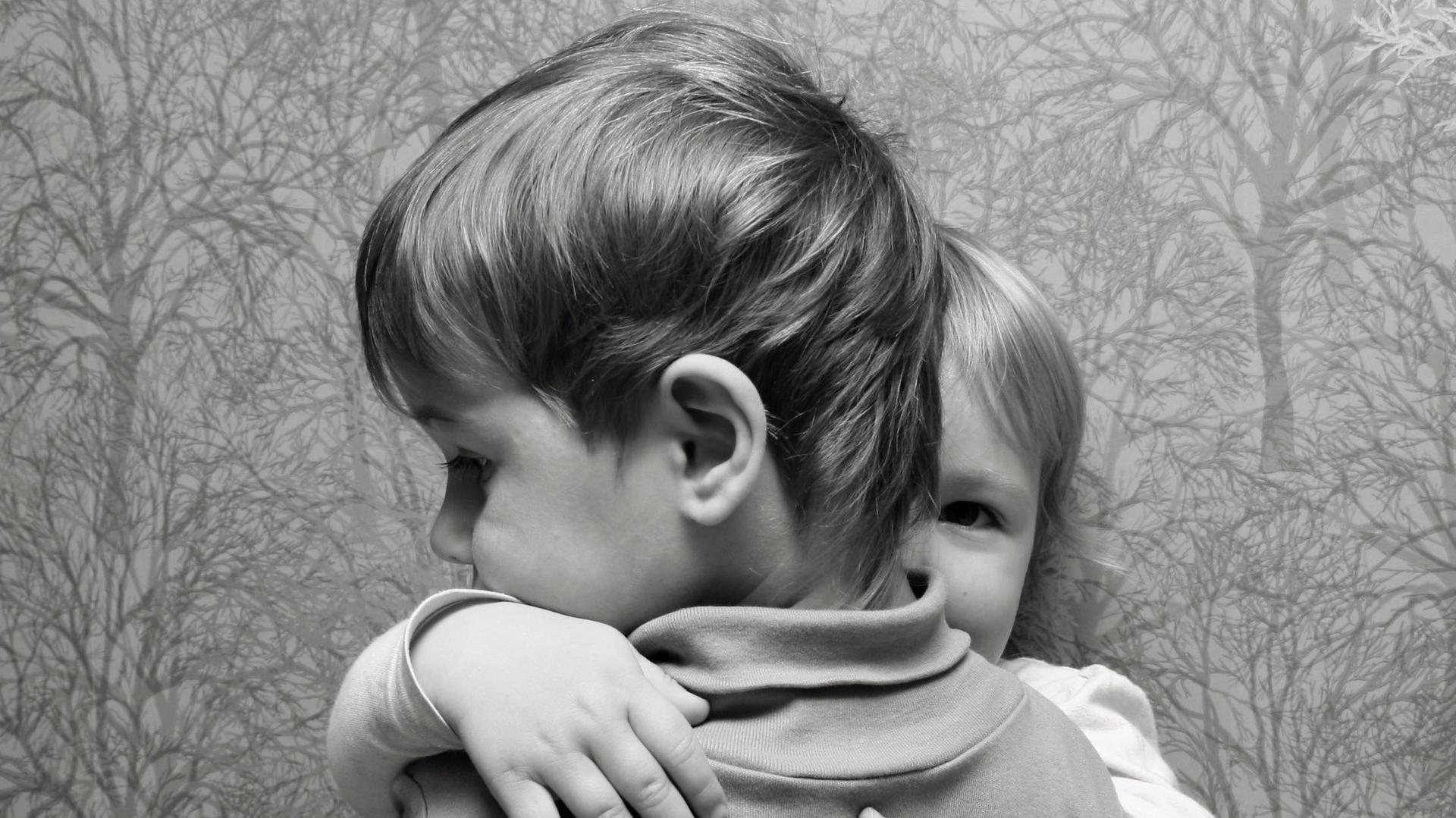How empathy leads us astray
This image shows a pair of empathetic humans.
It’s one of those questions every kid who’s ever smacked another kid gets asked by a stern adult: "How would you feel if you got hit?" The correct answer is, “Bad,” of course. But the point isn’t for you to answer. The question is meant to force you to feel that other kid’s pain, to feel empathy.
Empathy is one of those inherently good qualities we try to instill in our kids. It’s part of the glue that holds our society together.
But, Yale psychologist Paul Bloom is against it — at least a certain kind of it.
“The sort of empathy I’m arguing against involves shared feelings. Feeling people’s pain, feeling their suffering,” Bloom says.
And the reason he’s against it is that it clouds our decision-making. Bloom calls empathy an “unreliable moral guide.”
Politicians understand the power of empathy and use it to sway public opinion. A Republican against the Affordable Care Act may point to a family in Maryland whose health insurance premiums have skyrocketed in the last few years. But, a Democrat in favor of the ACA might point to a woman in Kentucky with a pre-existing condition who was able to get care for the first time in years.
Bloom argues that neither of these anecdotes should play into the decision of whether to scrap the ACA.
“Any broad interesting policy is going to have winners and losers, inevitably in the short term,” Bloom says. “People are going to suffer no matter what you do. Gun control, affirmative action, abortion. And so we should try our best not to be swayed by pictures and videos and sad stories, and ask cold-blooded questions like, ‘Which health care system is going to help the most people and provide the best health care and so on,’ and tell our politicians, ‘Don’t give me these stories.’”
And he says that empathy doesn’t just make us miss the forest for the trees. It also plays into our biases.
“Your empathy flows very powerfully for people who look like you, come from your country,” Bloom says. “Your friends, your family, your skin color, attractive, young, babies, teenage girls. Empathy is very difficult to get from people who look very different from you, who frighten you.”
So, how could we make ourselves less susceptible to the kind of empathy that Bloom describes? The answer might be to close your eyes.
“A lot of research suggesting that mindfulness meditation and meditative practices actually make people compassionate but less empathic,” Bloom says. “And so somebody suffering from burnout — [like] a doctor or therapist, who feels too much empathy and so isn’t very good at his or her job — might benefit from meditative practices.”
But, if you really want to boil it down, Bloom has some counterintuitive advice: “Don’t listen to your heart.”
Every day, reporters and producers at The World are hard at work bringing you human-centered news from across the globe. But we can’t do it without you. We need your support to ensure we can continue this work for another year.
Make a gift today, and you’ll help us unlock a matching gift of $67,000!
